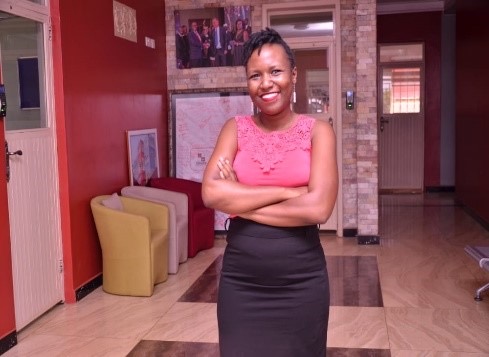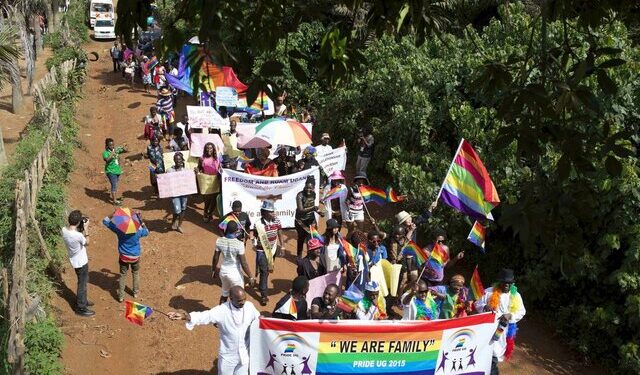By Rose Wakikona
For a country which in 2020 scored 73 points out of 100, putting it at a rank of 142 out of 180 countries, on the Corruption Perceptions Index, which ranks countries based on how corrupt their public sector is perceived to be (the higher the score, the more corrupt), and for a country where 46% of the population lives in poverty, it is strange to see that Ugandans’ greatest concern and fear is not corruption or poverty but homosexuality.
Homosexuality has become a very explosive social issue that has invaded the politics of the day, with members of the Lesbian, Gay, Bisexual, Transgender and Queer(LGBTQI) community being openly ridiculed on social media, abused and degraded in mainstream media and being subjected to brutal arrests and detainment by the police. In fact, majority of the populace see the LGBTQI community as an attack on the ‘family’ and push back with a passion equal to none. Many a time, the push back is cruel, degrading and demeaning.
Homosexuality which is referred to as an ‘unnatural act’ is criminalized under Section 145 of the Penal Code Act, Cap 120; this offence is further expounded under Section 13 of the Sexual Offences Act, 2021, which is at assent level, meaning it awaits the president’s signature to become law. Very few cases are successfully prosecuted under these offences but their existence makes members of the LGBTQI community vulnerable to harassment, detention and makes it difficult for them to access social services like health, education, employment, shelter, all of which they need to survive.
For some years now, there has been a systematic attack on shelters for members of the LGBTQI community in a bid to disrupt their social security and destroy their livelihood. For example, in October 2019, 16 members of the LGBTQI community were arrested, subjected to mob justice and forced anal exams. Again in November 2019, 120 members of the LGBTQI community were arrested and charged with possession of narcotics. The raids continued and in March 2020, 23 members of the LGBTQI community were arrested and charged with breaching Covid-19 guidelines. Most recently in June 2021, 44 members of the LGBTQI community were arrested and charged with breaching Covid-19 guidelines.

Usually when a person ‘comes out’, which is less likely to happen, or is discovered, which is more likely to happen, to be LGBTQI by their family, they are rejected, excluded and chased away from their families. To give this context, family in Uganda extends beyond the nuclear family and involves an entire clan that one is accountable to for the rest of your life, this family forms your identity, it is your social security, they bury you and in return you have a duty to continue the lineage of the family by having children. Without the assurance that comes with belonging to a family, members of the LGBTQI family find themselves with no community and therefore no social security.
Shelters that take in and protect members of the LGBTQI community, rejected by their families, offer them an opportunity to rebuild their lives and belong to a community other than their family, destroying the sanctity of these shelters with continuous police raids and the pitiless detention of LGBTQI people on trumped up charges destroys the fragile fabric of their lives that they are trying to piece together; this is cruel and inhumane.
According to the most recent census conducted in 2014, majority of Ugandans are religious with 82% claiming to be Christian and 14% claiming to be Moslem. Both religions preach the basic principles of love, understanding and humanity. They also widely promote acts of charity like giving to the poor, showing kindness and reaching out to the down trodden, with a lot of money being diverted to support mission work which does the above. It seems the exception to these acts of kindness is the LGBTQI community.
In the preaching of love, understanding and humanity,emphasis is placed on not just extending kindness to those who believe as you do but also to those who do not believe as you do. In fact, there is an expression in Christianity that you should ‘kill people with love’. The question I ask today is; where is the love when we glory and actively participate in humiliating and abusing human beings on media? Where is the love when we deny them basic shelter, health care, food and a livelihood? Where is the love when we blame them for every bad thing that happens in Uganda including the Covid-19 pandemic?
I can only hypothesize and say that the bogeyman of Uganda is that person who does not practice what they preach and we should fear them the most.

Rose Wakikona is a lawyer based in Uganda.


